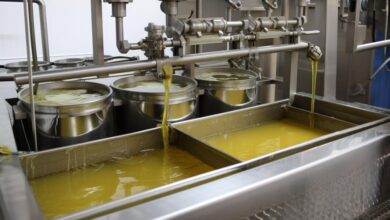Zimbabwe Enforces New Seed Certification Rules to Combat Fall Armyworm

The Government of Zimbabwe has introduced new regulations that require all certified maize seed to be treated with chemicals proven to combat fall armyworm, a destructive pest threatening national food security. The new mandate, outlined under Statutory Instrument 5 of 2025, updates the Seeds (Certification Scheme) Notice of 2000 as part of a broader strategy to strengthen the resilience of Zimbabwe’s agricultural sector.
The regulations were issued under the authority of the Minister of Lands, Agriculture, Fisheries, Water and Rural Development, and aim to ensure that maize seed certified for sale is already protected against the pest. According to the notice: “All certified maize seed shall be treated with a recommended and effective seed dressing chemical for the control of fall armyworm.”
The chemicals required must include a combination of a diamide and a neonicotinoid in flowable solution or an equivalent chemical with proven efficacy, all of which must be registered and approved by the Ministry.
The new rule makes it clear that any seed lots failing to comply with these requirements will not be authorised for sale or distribution as certified maize seed, marking a significant shift in certification standards.
Industry experts say this regulatory change will compel seed houses to upgrade their treatment processes and enhance supply chain logistics to ensure treated seed reaches farmers in time for the upcoming planting season.
Agronomist Ms Monica Maseko welcomed the move, noting that it would significantly reduce fall armyworm damage in the early stages of crop development. “It is a long-overdue step that brings science into the certification framework,” she said. “We expect to see better germination success and higher early-season yields.”
Ms Maseko explained that the regulation was introduced in response to widespread farmer concerns about the economic impact of fall armyworm infestations. Many smallholder farmers, she added, struggle to afford expensive post-emergence pesticides, leaving their crops vulnerable.
“We are moving from a reactive to a preventive approach in pest control,” she said. “This regulation ensures that farmers are equipped with seed already primed to resist fall armyworm. It reduces their early-stage vulnerability and cuts chemical input costs.”
She further stressed that building resilience into the seed itself is key to protecting farmers’ investments and restoring confidence in certified seed. “Robust certification anchored on integrated pest management principles is the future of sustainable agriculture,” she said.
Fall armyworm, a migratory pest originally from the Americas, was first detected in Africa in 2016. Since then, it has caused widespread crop damage across the continent. According to the International Institute of Tropical Agriculture, the pest threatens yield losses ranging from 8.3 million to 20.6 million tonnes annually across Africa if not controlled.
In Zimbabwe, fall armyworm remains a relatively new pest but has already caused extensive damage to maize fields. Its larvae feed aggressively on leaves and reproductive tissues, leading to yield losses of up to 30 percent in unmanaged fields. The pest also poses a threat to livestock, as its presence in pastures can cause starvation or poisoning when cattle graze on infested areas.
Fall armyworm is difficult to detect and control, with 10 to 12 breeding cycles per season, allowing it to rebound quickly after initial treatments. Its resilience makes preventive measures, such as seed treatment, particularly crucial.
The government’s new certification rules represent a proactive step toward mitigating this risk and safeguarding Zimbabwe’s maize production. By embedding pest resistance into the seed itself, the nation hopes to reduce the burden on farmers and strengthen food security in the face of evolving agricultural threats.




